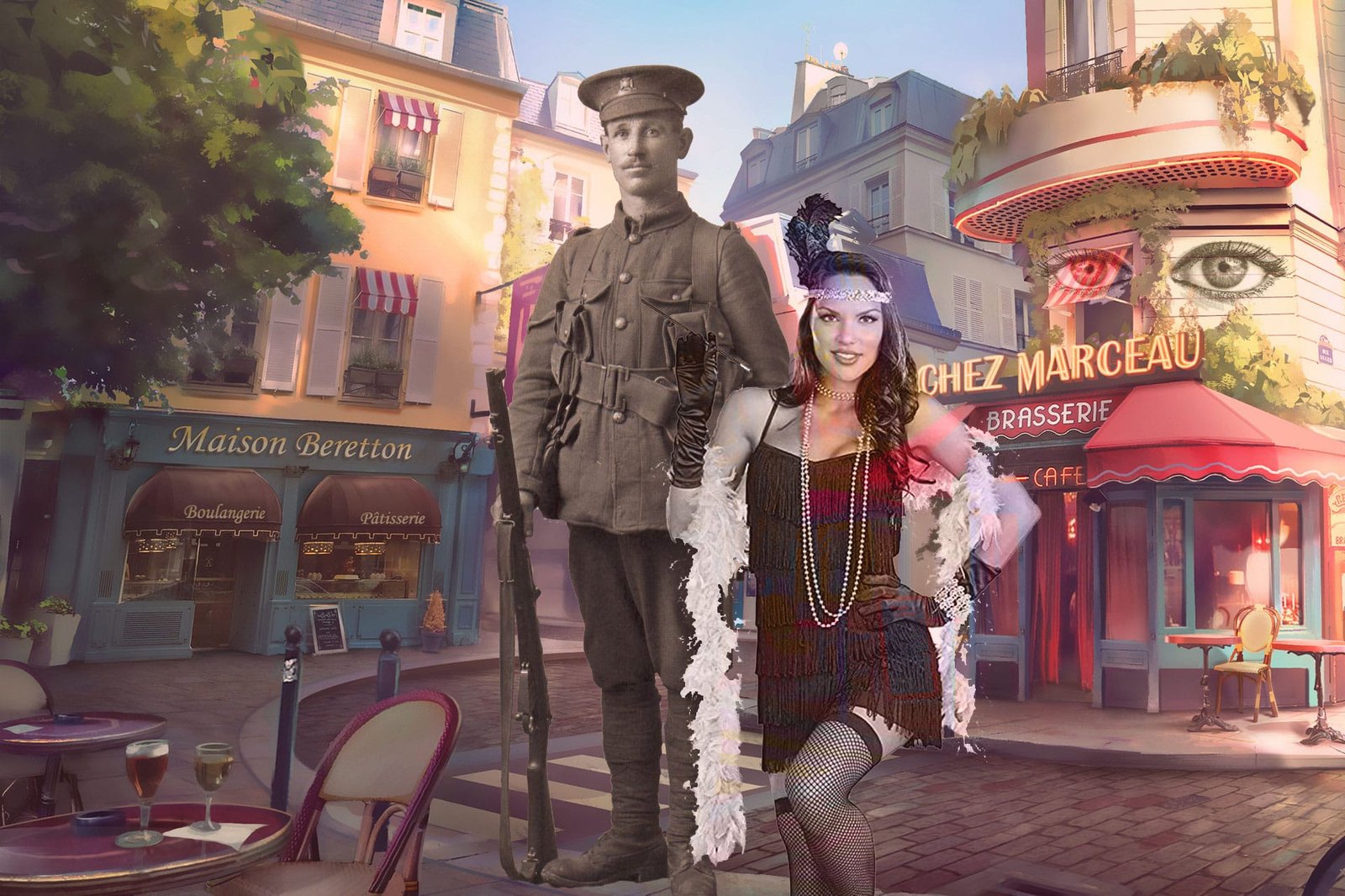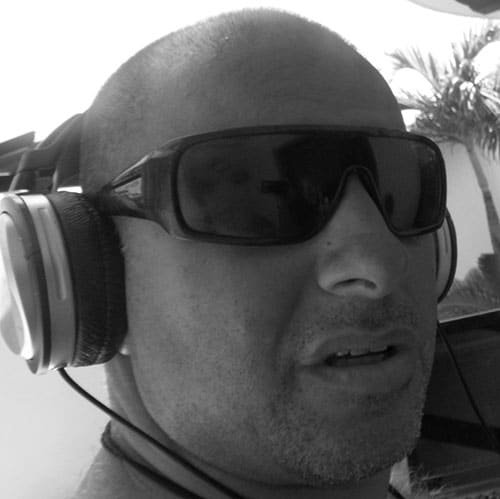Award-winning author pens riveting, cinematic WWI novel
Author J.B. Rivard delivers his best book yet
MESA, AZ–Now a prolific writer with dozens of novels completed, J.B. Rivard wasn’t always an author. A veteran of the Korean War and a specialist in nuclear reactor technology, Rivard balanced his career in engineering with a love for the arts. A visual artist turned novelist, Rivard’s creative work has received widespread acclaim in recent years.
In Rivard’s latest–and most daring–novel to date, “Dead Heat to Destiny” (February 7, 2023), the lives and loves of three people are imperiled during the cataclysm of the First World War. An adventurous historical novel with both romance and espionage, “Dead Heat” weaves a stunning tapestry of events.
About the book: Destined for success in the booming world of high fashion, young Adrienne Boch deflects the romantic pursuit of Will Marra, an American student in Paris. Her cousin, Gregor Steiner, completes his training as an officer in the Imperial German Navy. They, like the entire world, are unprepared when World War I begins. As the invading German army threatens Paris, Gregor advances to captain a U-boat, Will becomes a pilot in the U.S. Army, and Adrienne’s family flees and overrun Belgium. In Central America, a spy is recruited to defeat the United States. At the climax—during which love hangs in the balance—they meet in a thrilling and emotionally riveting clash.
Spanning 1903-1917, this cinematic novel transports the reader to a variety of stunning locales. With his dedication to historical accuracy and his immersive writing style, Rivard offers readers a front-row seat to the early twentieth century’s most compelling events.

J.B. RIVARD believes words can create pictures. His readers agree; one said, “I was right in the biplane cockpit with Nick,” referring to pilot Nick Mamer, the 1929 record-setting aviator in Rivard’s nonfiction book “Low on Gas – High on Sky.” A writer of historically accurate fiction and nonfiction, J.B. knows readers want the past to blaze up and enthrall them. His commitment to compelling and convincing writing derives from four years in the military as well as his technical career on the staff of a U.S. National Laboratory. A graduate of the University of Florida, he attended the Chicago Academy of Fine Arts and is an award-winning artist and author. His latest novel is “Dead Heat to Destiny,” in which the lives and loves of three people are imperiled during the cataclysm of World War One. To learn more about J.B.’s life and work, visit www.illusionsofmagic.com
In an interview, J.B. Rivard can discuss:
- His inspiration for “Dead Heat to Destiny”
- The research process involved in writing historically accurate fiction
- How he developed his signature cinematic writing style
- How his time in the military influenced his writing
- What he hopes to accomplish with this novel
- What inspired you to write “Dead Heat to Destiny”?
Researching the early life of aviator Nick Mamer for my nonfiction book “Low on Gas – High on Sky” confirmed Nick’s service in the Army’s 7th Aero squadron in 1917-18. Although an enlisted man without formal flight training, Nick amassed more than four hours piloting a rickety Curtiss biplane in observation and training flights over the Panama Canal. This introduced me to the United States’ preparations for entering World War I in 1917.
- What was the research process like for this book?
Although much research on the US Army’s fledgling Aviation Section had been done, much more was needed to support the four main characters of the novel. This research included the German invasion of Belgium and France in 1914, details of the booming fashion industry in Paris 1910-1917, the buildup of the German Imperial Navy and its advances in U-boat design, the operation of Etappendienst, the German spy agency, the pursuit of Pancho Villa by General Pershing’s Army in 1916, and much, much more. It was in-depth and exhausting, but also rewarding by increasing my ability to convey the realities of these experiences.
- Something that’s quite unique about “Dead Heat to Destiny” is how cinematic it is. It’s quite the page-turner! How did you accomplish this?
Writing my earlier crime novels taught me a lot about pace. As an admirer of Elmore Leonard’s novels, I often refer to his suggestions in The New York Times article (2001) “Easy on the Adverbs, Exclamation Points and Especially Hooptedoodle.” Sol Stein’s 1995 book Stein on Writing says modern readers, rather than being ‘told,’ are attuned by movies and TV to ‘seeing’ stories cinematically. He cautions modern writers to avoid static description and backstory in favor of immersing the reader directly into scenes. I often plunge the reader into a scene in which the action is underway—this seems to speed up the pace.

- You served in the military for 4 years. Did you draw on your experiences while writing “Dead Heat to Destiny”?
Yes, but probably not how you might think. What I learned is that military aviation is a serious business—a wrong move has consequences. But for writing about war, battles, and such, my participation in a number of nuclear blasts over the Pacific Ocean in 1962 probably contributes.
- What do you hope readers will take away from this book?
Adults of the 21st century are well-aware of how unpleasant war is for participants—civilian as well as military. But war’s brutalities also force participants to face and endure realities that illuminate their character and the sometimes impossible choices they face. My story suggests how the war of a century ago impacted friend and foe—for both good and evil. I hope readers find the story enjoyable!
Other Books by J.B. Rivard
See all of J.B. Rivard’s works on Amazon.com

Johnny Punish founded VT in 2004. After 20 years at the helm, he “retired” from the daily operations in late 2023 passing the ball over to the new owner of VT, Chief Justin Time. He now writes for VT as “Writer Emeritus”. He is also a global citizen eco-activist, visionary, musician, artist, entertainer, businessman, investor, life coach, podcast host, and syndicated columnist.
Punish is an ethnically cleansed Palestinian-American whose maternal family was evicted from their home in Haifa, Palestine in 1948 by Irgun; a Euro-Zionist Settler Terrorist Group. The family became part of the over 1,000,000 Palestinians who are Al-Nakba refugees (The Catastrophe). The family fled to Beirut Lebanon for 13 years eventually emigrating to the USA in 1961 via a Brasilian passport obtained by his Palestinian Brasilian-born grandmother (In the early 1900s, the family was sent to Sao Paolo Brasil as guest workers in the mining industry. Punish’s father is Italian-American from New York City. Punish’s paternal great-grandparents emigrated to the USA from Naples Italy and Marineo in Sicily in the 1890s. Punish was born in the Bronx, New York in 1963.
Punish was educated at the University of Nevada Las Vegas (1980-81) and California State University Fullerton (1981-1984) with studies in accounting and business. Before the “internets” had been invented, he owned and ran (5) national newspapers in the United States of America from 1987-1998. From 2004 to 2023, he owned and managed VT Foreign Policy retiring at the end of 2023.
Punish is also a recording artist. He has over 100 original songs written. He records and produces music. A member of ASCAP, Punish has several songs placed in feature films. His music is promoted worldwide and played on all digital networks and net radio.
He is also the founder and owner of Global Thinkers, a freedom media that helps free thinkers create real wealth.
Resources: Facebook – YouTube – Apple Music – SoundCloud – Spotify – X (Twitter)
Read Johnny’s Full Bio at JohnnyPunish.com >>>
ATTENTION READERS
We See The World From All Sides and Want YOU To Be Fully InformedIn fact, intentional disinformation is a disgraceful scourge in media today. So to assuage any possible errant incorrect information posted herein, we strongly encourage you to seek corroboration from other non-VT sources before forming an educated opinion.
About VT - Policies & Disclosures - Comment Policy




